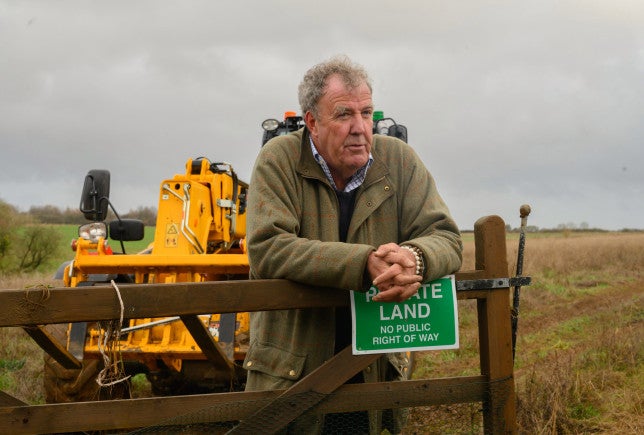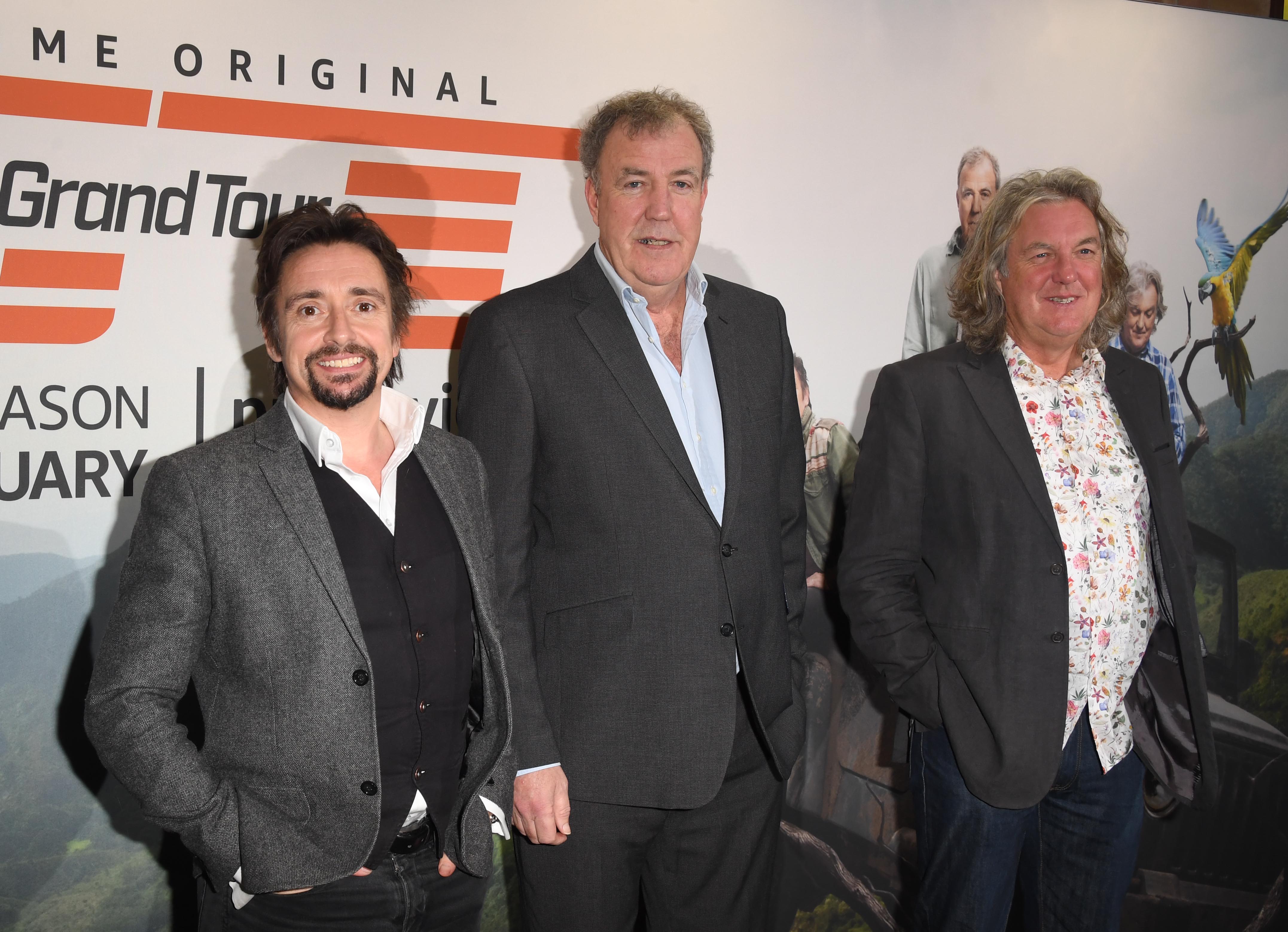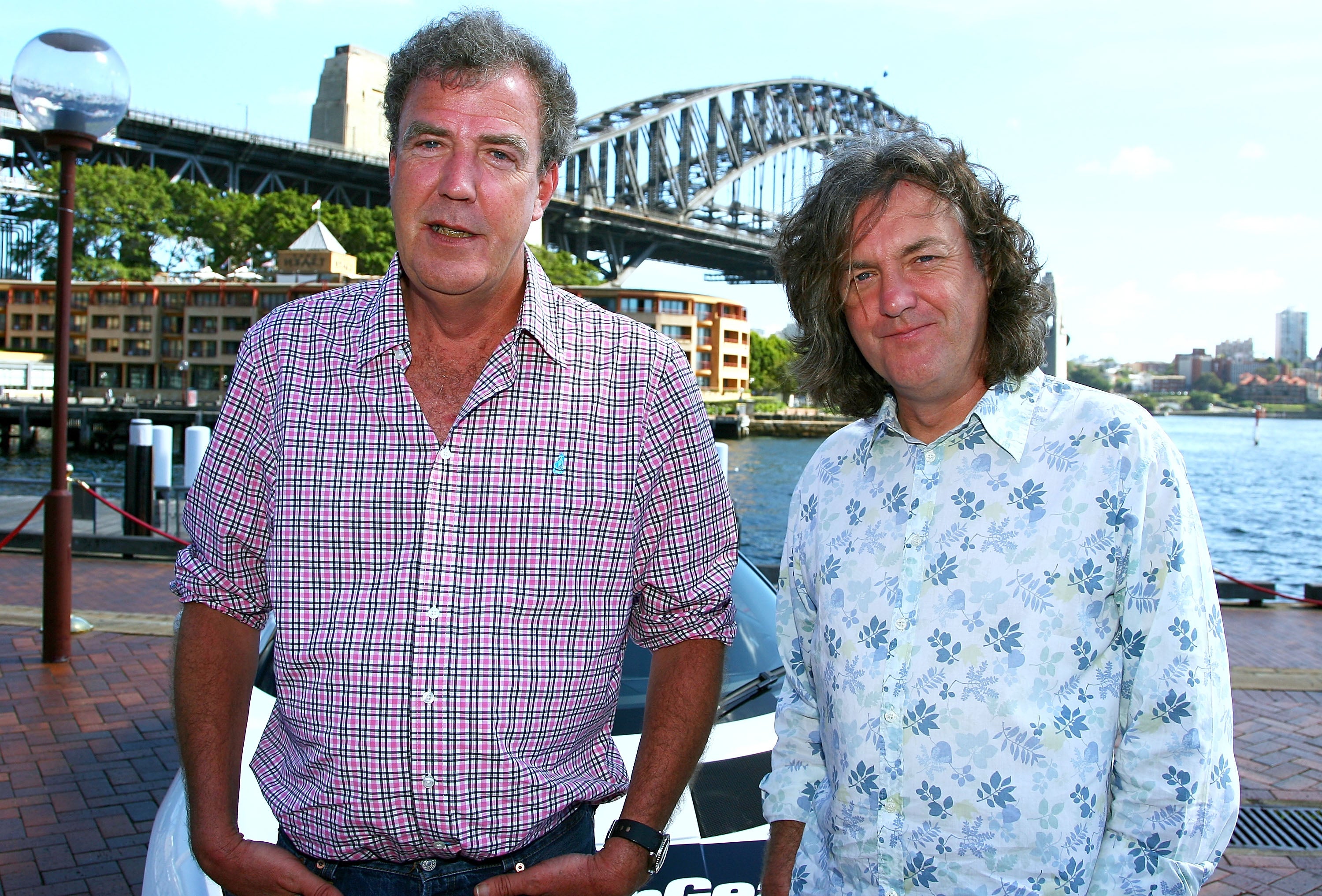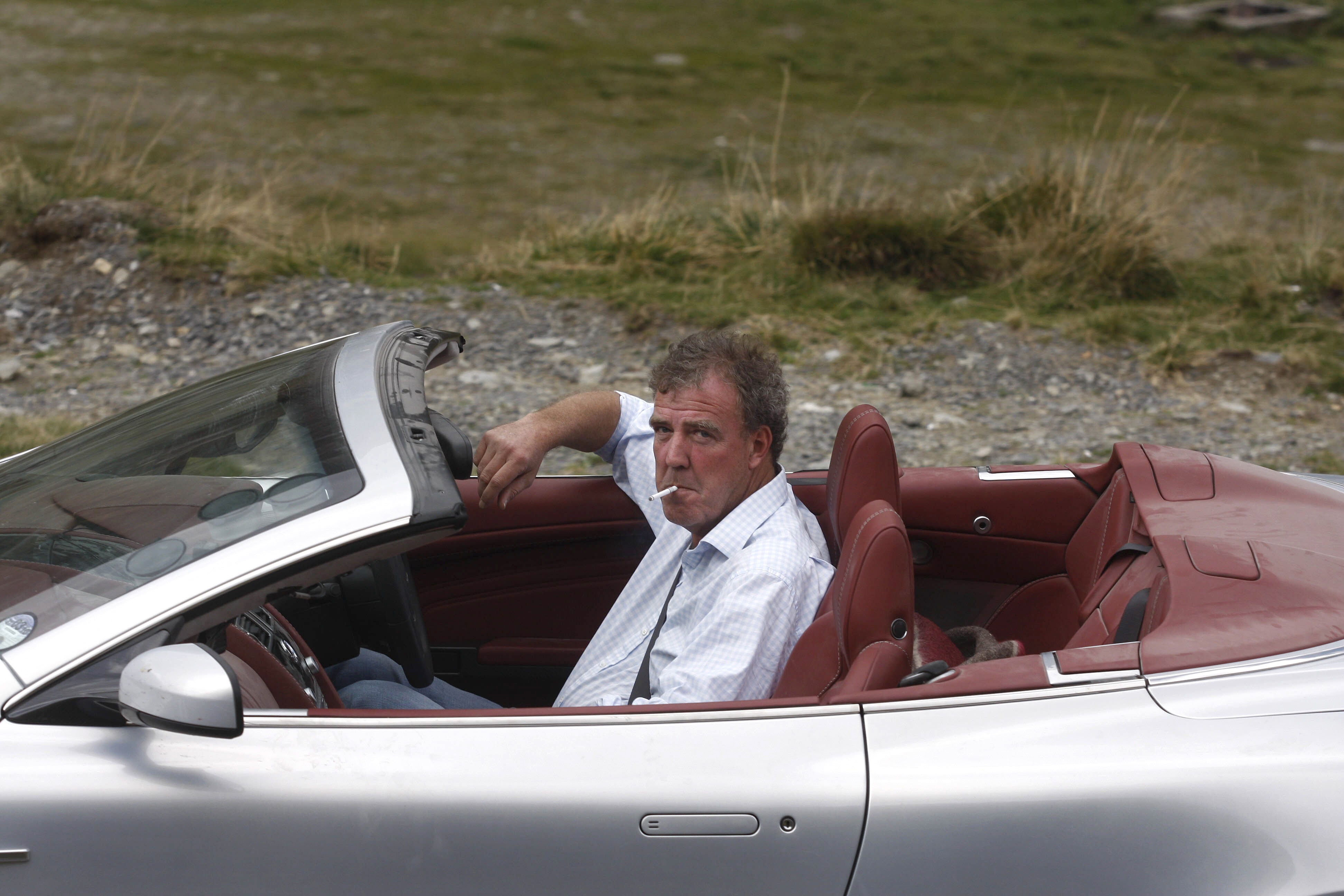Jeremy Clarkson: Oafish, opinionated and very, very popular
The TV and journalism big beast is enjoying glowing reviews for his new farming show on Amazon Prime. But, asks Sean O’Grady, are we too quick to forgive his past vile behaviour?


For too many weeks now, the British people have been put through a series of collective mental tortures. How far would the Welsh, Scottish and English football teams get in the Euros? Would so-called pandemic freedom day be cancelled? Would Toby pick new girl Chloe on Love Island? And, of course, most tense of all, would Jeremy Clarkson get a second series for his farming show?
The jubilation was unconfined upon confirmation that Jeff Bezos, boss of Amazon and fresh back from space, had graciously consented to the clamour. Clarkson’s Farm will indeed be back on our screens. Maybe the doubts about its future were hyped up a bit when Clarkson told his 7.3 million followers to “write to Amazon, it’s their decision”. It is genuinely popular and a bit of a sensation. But then Clarkson does know what he’s doing, media-wise, spinning them as artfully as the Stig in a BMW M5 with the stability control turned off.
It is very good news indeed for Jeremy Clarkson, and not just because of the fees from Amazon that are presumably making up for his farm’s lack of operating profits – £144 from the arable side of the business last year, or £12 a month. Hence the name he has given it: Diddly Squat Farm – an enterprise he’s been trying to run since the chap he employed to do so retired a couple of years ago.
It probably isn’t going to add much to Clarkson’s net worth of about £50m. It might, though, help him pass on at least part of his fortune to his three children free of inheritance tax, as farms are exempt; and it’s the kind of thing the very rich do these days. Or he might just have thought it a bit of a laugh to own a big slice of land to show off to his friends and get acquainted in the Chipping Norton set, the likes of (the now unfashionable) David Cameron and Rebekah Brooks. Anyways, the larks – lambing, farm shop, tractor stuck in mud – make for fine viewing.
As the popularity of Clarkson’s Farm grows, remarkably, so does its star farmer find new fans in unexpected places. Progressive places. Woke places. The Independent’s Ed Cumming praised the show for championing the unrepresented rural folk down in the Cotswolds: “They get little love from the media. England’s rural population work extremely long hours for little reward, their expertise increasingly futile against the changing climate and the headwinds of global trade. By setting himself up as the goon, Clarkson gives the people who help him the chance to show their worth.”
The Guardian chimed in with a piece from the appropriately named Stuart Heritage, which Clarkson was so happy with he retweeted it: “Yes, he is oafish and opinionated, but he’s also quieter and more thoughtful than the man we had grown familiar with. We watch him fret about the permanent loss of agriculture due to chemical topsoil erosion. We see him grappling with regulations and trying to understand tiny variables that could ruin entire crops.” But are we really getting closer to who Clarkson actually is? And is it worth it?
It’s long been rumoured that the private Clarkson is not entirely the man that the public sees. At cosy kitchen supper parties in the Cotswolds, he’s apparently got relatively moderate, temperate views on people and politics. Some of these seep out into the public domain. He voted Remain in the Brexit referendum. He’s not impressed by Boris Johnson’s response to the pandemic. He doesn’t think Covid is a hoax. He’s got some time for Keir Starmer, and isn’t what you’d call a Trumpite, despite some Trumpian views. He’s still basically a bit of a Tory.
The public has seen an awful lot of Clarkson, it must be said, over the decades during which he’s been part of national life – thanks to his long career in motoring journalism, and his columns in The Telegraph, TheSun and The Sunday Times; his books, documentaries, countless TV and radio appearances; the chat shows, the gossip columns he features in, the scrapes he gets himself into; and, of course, his roles on Top Gear, The Grand Tour, Who Wants to be a Millionaire?... and, now, the rural thing. We know more about him than about almost anyone, with the possible exception of some members of the royal family, Boris Johnson, and Donald Trump.
Clarkson’s early motoring-magazine journalism is, oddly enough, strikingly mature and thoughtful, betraying his deep interest in engineering and history
Naturally, we know what cars he likes, and owns – including Range Rovers, Mercedes-Benz dictator wagons, Bentleys and proper Alfa Romeos – and what cars he thinks were designed by someone who ate a spaniel for lunch (Hyundai XG), are a bit “gay” (Daihatsu Copen), and are so dull he couldn’t find anything to say (Vauxhall Insignia). We know what music he likes, thanks to Desert Island Discs. For the record (so to speak), his liking for 1970s prog rock and the like seems genuine from his choices: “Your Song” (Billy Paul); “Behind Blue Eyes” (The Who); “Night Moves” (Bob Seger); “Time” (Pink Floyd – his favourite); “Get Ready” (The Temptations); “Make Me Smile (Come Up and See Me)” (Steve Harley & Cockney Rebel); “Heroes” (David Bowie); Solsbury Hill (Peter Gabriel).
From his slot on Room 101 we were unsurprised to find that he detests caravans, flies, Last of the Summer Wine, “the mentality within golf clubs”, and vegetarianism (though he seems sentimental these days about the sheep he rears). When he looked up his family tree for Who Do You Think You Are?, both he and its viewers were delighted to discover that his great-great-great-grandfather John Kilner had invented, and made lots of money from, the Kilner jar.
He often talks about how his parents made and sold Paddington bears, and how his father Edward managed to charm Michael Bond into letting him have the worldwide licensing rights to his creation, setting the family up and paying for Clarkson’s private education. It was at Repton that Clarkson met Andy Wilman, who went on to become producer and reinventor of Top Gear. By the time they’d finished with it – or, more accurately, the BBC had finished with Clarkson – the show had attracted 350 million viewers worldwide, and was a huge money-spinner for the corporation.

Clarkson’s school fees might not have been entirely wisely spent, though, from a purely academic perspective: he emerged with a C and two U grades at A-level, and no university course was taken. Instead, he sold Paddington bears for a time, unsuccessfully, and then went straight into journalism, starting at the Rotherham Advertiser (Clarkson was born in Doncaster, but is no professional Yorkshireman). In due course he had the smart idea of writing articles about cars and getting them syndicated, following in the family’s entrepreneurial traditions.
His early motoring-magazine journalism – we’re venturing back to the 1980s here, when all he had was a flat in Balham – is, oddly enough, strikingly mature and thoughtful, betraying the deep interest in engineering and history a wider public would eventually see, such as when he championed Isambard Kingdom Brunel for the BBC’s Greatest Britons competition. It’s also worth adding that Clarkson is not simply a motor-mouthed, twin-turbo, supercharged publicity engine, but a genuinely fine writer – when he wants to be – and he’s good at the contrarian stuff. This is one little gem from The Telegraph, responding to a survey of the relative “liveability” of some of the world’s great cities:
“The thing is, though, I like Detroit because it’s dangerous. As Gertrude Stein would have said, “There’s a there, there.” It’s often argued that you never feel more alive than at the point of death, and that is what makes Motor City so vibrant and zesty. When you know for sure there’s a mugger round the next bend, you make sure you make the most of walking round it.”
These days, anyone who used the n-word, even as sophisticated self-satire with no intention of its being broadcast, would get a second chance, let alone a second series of anything
What else? There’s his private life – two divorces, three children, and a current, younger partner – actress and model Lisa Hogan, who helps out in the Diddly Squat Farm Shop and helped Clarkson kick his tobacco habit. (A bout of severe pneumonia also put him off his Marlboros.) Obviously, we know that he used to be a sceptic about man-made climate change, and considered Greta Thunberg a “spoilt brat”, but he has recently come round to the idea of it being an emergency. A trip to the Mekong Delta for his Amazon show apparently alarmed him greatly, and even some of his sponsors, such as The Sun, have moved with public opinion in a greener direction. Clarkson’s Farm also seems to have encouraged him to commune with nature’s creatures, including his young farmhand Kaleb, whom he treats alternately as a guru, pet, and “rural idiot”.
His public aren’t sure of it, but probably discern a certain amount of devilment and mischief in some of his stunts and self-consciously “controversial” remarks. They seem born of a childish desire to offend for the sake of it; to attract brand-building publicity by way of some lazy prejudices, usually about foreigners. Most of them have resulted in the BBC making a (some might say) empty apology on his behalf and then allowing him to get on with the next day’s filming.
Far from being the sort of woke-obsessed PC liberal fascist machine its enemies – sometimes including Clarkson himself – like to paint it as, the BBC spent inordinate amounts of time and woke “capital” defending him and putting his remarks “into context”. So, for example, when Clarkson and his Top Gear co-presenters James May and Richard Hammond went off on some riff about “lazy, feckless, flatulent, overweight” Mexicans, they knew full well that the Mexican embassy would object, because they said so during their “comedy” routine; the BBC routinely apologised, though adding that national stereotyping was part of British humour. Even 10 years ago, that wasn’t a liberal stance for the corporation to take.

The truth was that Clarkson was too big to fail, until he wasn’t. He got away with some vile remarks that could have been excused if he were a kid; but for a man in middle age, and even allowing for a certain amount of cynical publicity-seeking, seem indicative of an unpleasant personality to say the least. With the cold perspective of a few years added on, they make for quite disturbing reading. Talking about a one-day strike by public sector workers against austerity in 2011, Clarkson declared: “I’d have them all shot. I would have them taken outside and executed in front of their families.” Driving an old Jaguar XJS around some Indian slums, like you do, he strapped a toilet onto the boot because “this is perfect for India because everyone who comes here gets the trots”. Admiring a bridge in Thailand as a man crossed it, he quipped: “There’s a slope on it” – a racial slur chucked as casually as he might dispose of a dog-end. His producer, Wilman, later apologised for the comments, claiming that “we were not aware at the time ... that the word ‘slope’ is considered by some to be offensive”.
Bad as all that was, the last two incidents of Clarkson’s BBC career do leave him looking and sounding like a racist – though he and those who know him deny it – and a violent bully. When they took place, only about seven or eight years ago, they were enough to get him sacked; but now, post-Black Lives Matter and the movement for racial justice, the first of them would likely have him “cancelled”, permanently. They seem to have been forgotten in the enthusiasm for Clarkson’s Farm, but they were not so long ago, and one doubts that anyone who used the n-word now – even as sophisticated self-satire with no intention of its being broadcast; or using childishness as an excuse – would get a second chance, let alone a second series of anything.
The first, involving the n-word, was the leaked video footage that ended in a final warning from the BBC. It was a sequence comparing closely related Toyota and Subaru sports coupes, and Clarkson did a few takes, reciting versions of the traditional children’s rhyme, “Eenie, meenie, miny, mo…” to make the point that there wasn’t much to choose between them (though purists would argue the Subaru’s “boxer” engine is much superior).
It’s only fair to give Clarkson’s own apologetic account of it: “Of course I was well aware that in the best-known version of this rhyme there is a racist expression that I was extremely keen to avoid. I did three takes. In two I mumbled where the offensive word would normally occur, and in the third I replaced it altogether with the word ‘teacher’. Now when I viewed this footage several weeks after, I see that in one of the mumbled versions, if you listen very carefully with the sound turned right up, it did appear that I’d actually used the word I was trying to obscure. I was mortified by this, horrified. It is a word I loathe, and I did everything in my power to ensure that that version did not appear in the programme that was transmitted.
“I have here the note that was sent at the time to the production office and it says: ‘I didn’t use the n-word here but I’ve just listened through my headphones and it sounds like I did. Is there another take that we could use?’ Please be assured that I did everything in my power not to use that word, as I’m sitting here begging your forgiveness for the fact my efforts obviously weren’t quite good enough, thank you.”
What’s more obvious to me is that there’s something wrong with somebody that would even think of using that rhyme in that context in that way to say something about cars; alternative ways of expressing himself were available. Frankie Boyle, no stranger to pushing boundaries, called Clarkson a “cultural tumour”.

Hence the final warning. The end famously came with what Viz commemorated with a souvenir plate dedicated to the “people’s presenter” and “the fracas that broke 350 million hearts”. It was, though, a serious matter: an assault on a more junior member of staff, after 20 minutes of various abuse hurled at producer Oisin Tymon, whom Clarkson called a “lazy Irish c***”. Tymon had failed to secure a hot supper of steak and chips for the star after a hard day’s filming, because the chef at the hotel had gone home, and offered Clarkson some cold cuts. So enraged was Clarkson that he thumped Tymon, splitting his lip and sending him to A&E.
It was too much for the BBC, and Clarkson was out. “F***ing b*****ds,” was Clarkson’s response, and he was backed by the parts of the press that judged he’d been victimised for being “too white, too male and too damned British”, as the Daily Mail put it, seeming to ignore the years the BBC had spent trying to stick up for him and keeping him on. It echoed another much earlier incident, when he allegedly punched Piers Morgan so hard that Clarkson’s wedding ring, according to Morgan, left a scar on his face. (Clarkson’s publicist later told The Independent it was a “girly slap”.) Blokeish as his image is, it seems to me that Clarkson may simply be a not very nice bloke.
Violence and allegations of racism were the reasons that Clarkson’s BBC career ended. His nemesis – director of television at the time, Danny Cohen – said that no personality was bigger than the BBC. This was true, but soon enough the likes of Netflix were becoming bigger than the BBC, and Clarkson has continued to prosper. Whether through luck, guile, talent or some alchemy of the three, Clarkson is, arguably, more popular than ever. Relaxing with a bottle of rosé and Lisa after a hard session lambing, Clarkson declares that he’s never been happier. At 61, he has nothing more to prove and things are going very nicely for him. Just so long as he doesn’t lose his rag and wallop Kaleb, that is.
Join our commenting forum
Join thought-provoking conversations, follow other Independent readers and see their replies
Comments

Bookmark popover
Removed from bookmarks